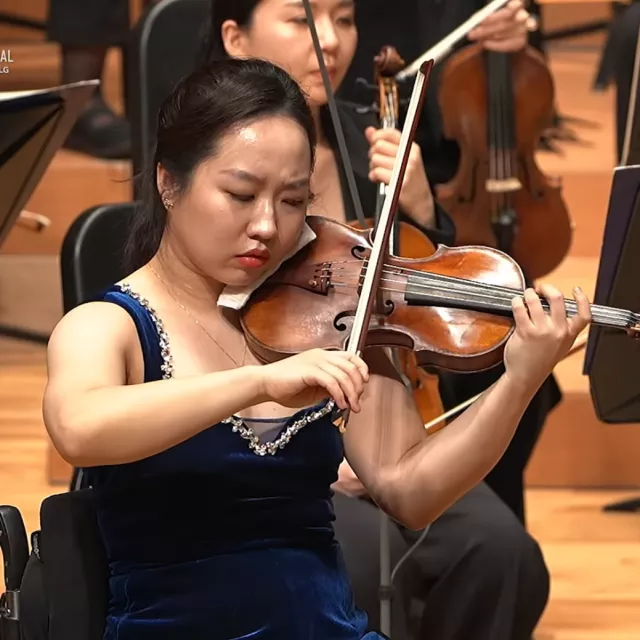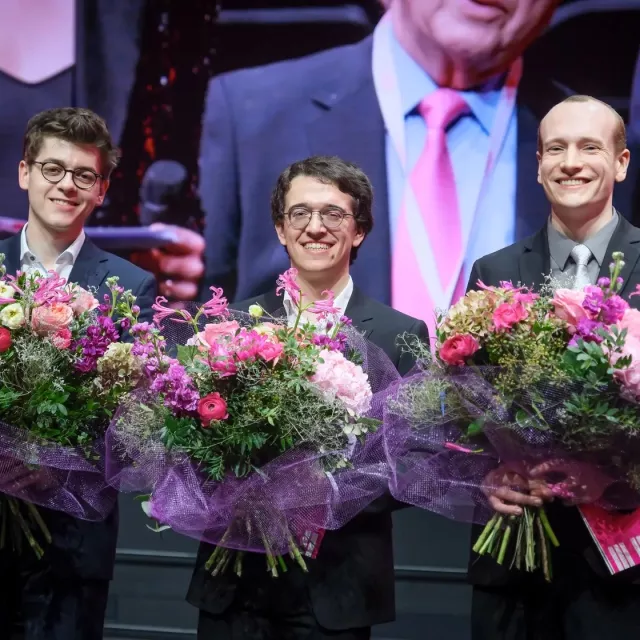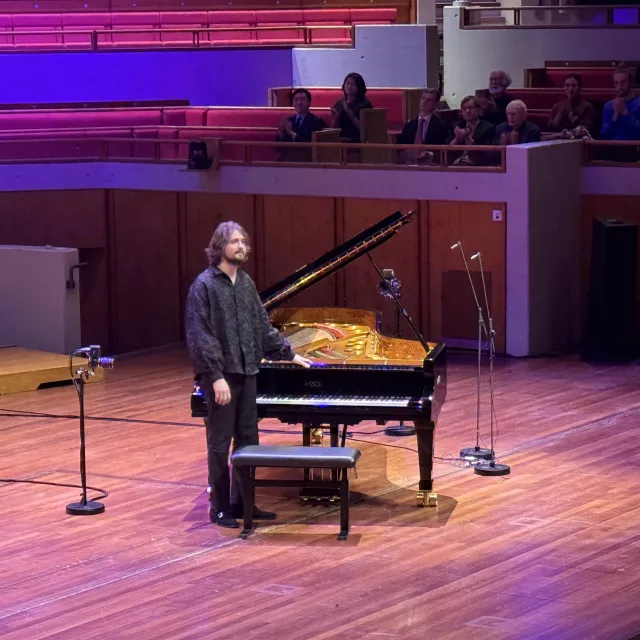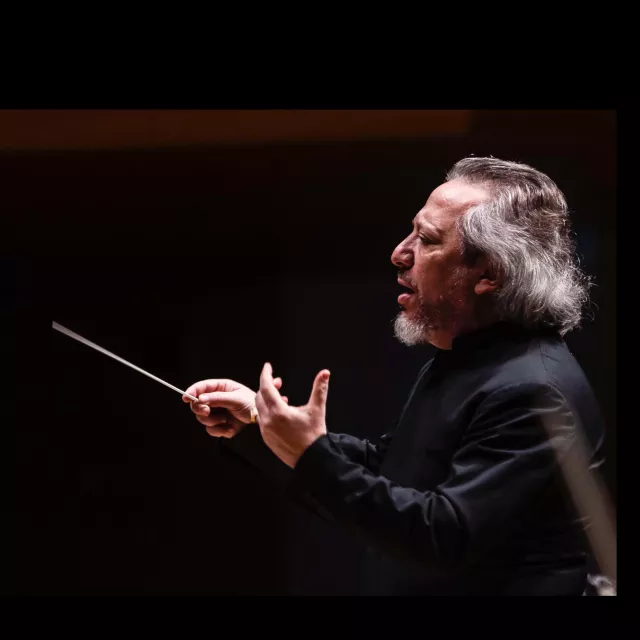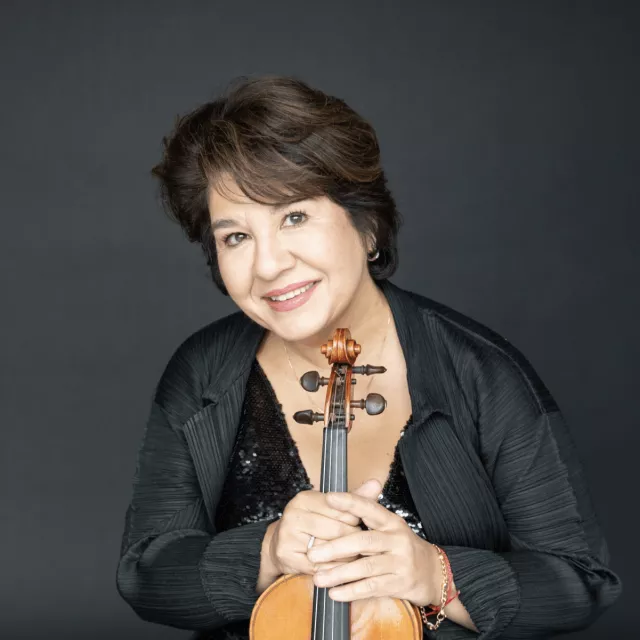Did you talk to the jury after the competition?
Actually, I didn´t talk to many jurors after the competition, but I received some very nice and warm messages. That was very encouraging. But apart from that, I had some interesting encounters with the audience. After I played Mozart in the second round, some people came to me and asked why I had played so softly and almost timidly, and they would have expected me to play differently. I was surprised, because I had a rather different impression, I had felt quite good on stage, interaction with the orchestra had been wonderful, so I was worried about the result. But in the end, things turned out well, and there was no reason to be worried.
How did you feel about the week “in seclusion” at the Chapel?
At the beginning, I thought I was going to be bored a little, but you are so immersed in the music that there is not much time for anything else. You think about the competition, you think about your music, you rehearse. You talk about music, sometimes you go to the Bozar to rehearse, you come back and talk about the experience- it was really nice. There is hardly a more pure, focused environment to work and prepare. And, before I forget to mention it- the food was absolutely wonderful. I am lactose- intolerant, and they made a special meal for me every day, which was super nice.
Later on, when the finalists began to leave, the stress and nervousness returned. You know that some of the candidates have already finished their concerts, got their phones back, they are talking to their friends and families, but yourself, you are still in isolation. You know you will be on stage very soon, too, and you can feel the pressure coming back… but other than that, it really felt like a summer festival in a way. You can sense this special bond between yourself and your fellow musicians, you are being treated really well, you have your own room and your own piano, and you can stay and practice 24 hours a day. It´s a very unique experience.




